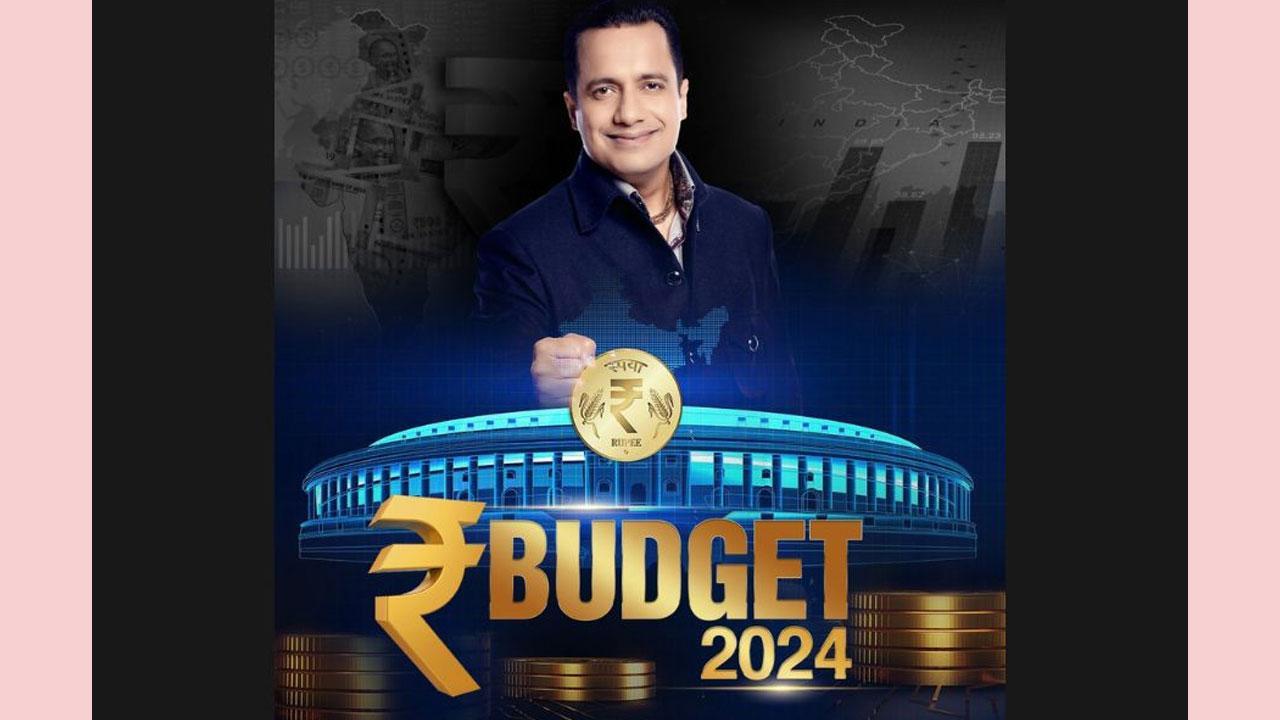The Union Budget 2024-25, presented by Finance Minister Nirmala Sitharaman, has stirred a variety of responses across sectors.

Vivek Bindra
This budget, her seventh consecutive presentation, aimed to balance the immediate needs of the populace with long-term economic goals. Here's a sector-wise analysis, covering expectations, announcements, reality, and suggestions for Infrastructure, MSMEs, Exports, and Education.
ADVERTISEMENT
Infrastructure
Expectations: The infrastructure sector, vital for economic growth, had high expectations. We anticipated a significant increase in infrastructure spending to boost job creation, enhance connectivity, and drive economic growth. At least 8-10 new expressways were expected to be announced to further improve road connectivity.
Announcements: The government announced an 11.1% increase in infrastructure outlay, raising it from 10 lakh crore to 11.11 lakh crore. Two new expressways were unveiled: Patna-Purnea and Buxar-Bhagalpur, with a slight increase in the total budget for road connectivity by 3%.
Reality: While the increase in infrastructure investment is commendable, it falls short of the anticipated number of new projects. The focus remains on completing existing projects like the Delhi-Mumbai Expressway and the Dwarka Expressway, which are progressing well.
Suggestions:
- Automation and Skilling: There is a high dependence on unskilled labor. Learning from China, we should invest in modern machinery, automation, and digitization to increase productivity, safety, and reduce project completion
- Project Tracking: With 45% of projects running late, causing cost overruns, a separate entity should be established for timely completion, monitoring, and reporting of construction projects to reduce these
MSMEs
Expectations: MSMEs are the backbone of India's economy, contributing 30% to the GDP. Expectations included extending the NPA deadline, increasing the Mudra loan limit, relaxation on GST, and expansion of the Production Linked Incentive (PLI) scheme.
Announcements:
- Mudra Loan Limit: Increased from 10 lakh to 20 lakh, though not as much as
- Credit Guarantee Scheme: 100 crore allocated for collateral-free
- Export Hubs: Instead of an inter-country trade app like Ali Baba of China, export hubs were announced to ease MSME
Reality: The budget missed several key expectations such as extending the NPA deadline and relaxing GST regulations for MSMEs. The increase in the Mudra loan limit and the credit guarantee scheme are positive steps, but more comprehensive measures are needed.
Suggestions:
- Crowd-funding Platforms: Introduce SME bonds and crowd-funding platforms, similar to the Netherlands, to provide alternate financing
- NPA Deadline Extension: Extend the period for classifying a loan as NPA from 90 to 180 days to give MSMEs more time to settle
Exports
Expectations: To reach the $2 trillion export target by 2030, expectations included zero-duty on raw materials, developing Indian shipping lines, and raising consignment limits for courier exports.
Announcements:
- Raw Material Duty: Exemptions for raw materials used in leather, textile, garments, and footwear were
- Tourism Boost: Development of Vishnupad and Mahabodhi temples in Bihar to promote
Reality: While the duty exemptions and tourism initiatives are positive, the absence of announcements for developing Indian shipping lines and raising consignment limits for courier exports are notable misses.
Suggestions:
- Indian Shipping Lines: Developing Indian shipping lines could save significant outward remittance on shipping
- Skilled Labour for High-touch Services: Train the workforce to adapt to AI-driven services and specialize in high-touch services like elder care, where AI And export this labourforce to earn remittances.
- Cultural Tourism: Make India a global hub for Hinduism and Buddhism, attracting religious tourists from around the
Education
Expectations: With over 45,000 degree colleges and 1,000 universities, expectations included increased spending on education, better student-teacher ratios, and infrastructure improvements for schools and colleges.
Announcements: The government has introduced Rs 10 lakh loans for higher education in domestic institutions with a 3% interest subvention. This initiative aims to reduce the financial burden on students seeking higher education within India.
Reality:
- Digital and Technological Divide: Despite the global push towards digital education, only 30% of Indian classrooms are digital, compared to 70% in the
- Quality of Education: Only 7% of engineering graduates in India are employable, and 95% of Indian software engineers lack coding skills, pointing to a dire need for curriculum overhaul and better training
- EdTech Industry Decline: The investment in India’s EdTech sector has sharply declined from $4.73 billion in 2021 to $297.3 million in 2023. This significant drop indicates a need for renewed focus and support for educational technology initiatives.
Suggestions:
- Establish Incubation Centers: Every college should have incubation centers to promote startup culture and skill development, aiding students in gaining practical knowledge and entrepreneurial
- GST Exemption for BPL and Low-Income Groups: Educational courses should be 100% GST exempt for Below Poverty Line (BPL) and low-income groups to make education more accessible to economically weaker
All in all, the Union Budget 2024-25 is a balanced one, addressing some immediate concerns while laying a foundation for long-term growth. However, there is room for improvement. A strategic focus on automation, comprehensive support for MSMEs, development of Indian shipping lines, and enhanced educational infrastructure could drive India towards a more robust and inclusive economic future.
 Subscribe today by clicking the link and stay updated with the latest news!" Click here!
Subscribe today by clicking the link and stay updated with the latest news!" Click here!









